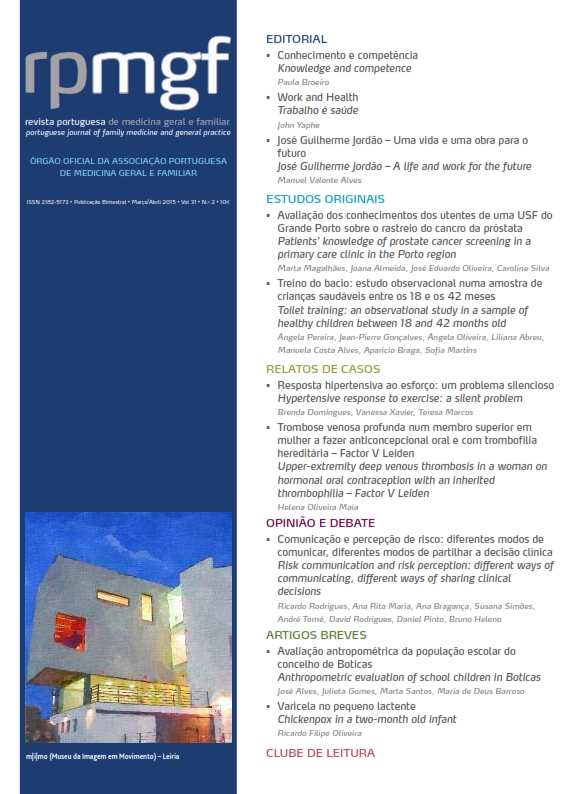Patients’ knowledge of prostate cancer screening in a primary care clinic in the Porto region
DOI:
https://doi.org/10.32385/rpmgf.v31i2.11464Keywords:
Prostate-specific Antigen, Screening, KnowledgeAbstract
Objective: To assess patients’ knowledge of prostate cancer screening in a Family Health Unit in the North of Portugal (USF Camélias). Study Design: Cross sectional. Setting: USF Camélias. Population: Male patients between 40 and 75 years old in USF Camélias. Methods: From a population of 3067 males, a stratified random sample of 500 individuals was selected. We assessed patients’ knowledge of prostate cancer screening in a telephone survey. Results: Of the 308 men who completed the survey, 77.9% had heard about prostate specific antigen (PSA) (47.7% from their family doctor). Most stated that men should have a PSA test performed at least every two years starting at 40-50 years of age. Regarding digital rectal examination (DRE), 43.8% did not respond or claimed they did not know the recommendation for the examination. Conclusion: The patients surveyed had a moderate knowledge about prostate cancer screening. In order to better understand knowledge of prostate cancer screening in Portugal, more studies in a wider setting are required.Downloads
Downloads
Published
Issue
Section
License
The authors will assign to the RPMGF the sole right to publish and distribute the content of the manuscript specified in this declaration via physical, electronic, broadcasting or any other medium that may come into existence. They also grant the RPMGF the right to use and exploit this manuscript, in particular by assigning, selling or licensing its content. This permission is permanent and takes effect from the moment the manuscript is submitted, has the maximum duration allowed by applicable Portuguese or international law and is of worldwide scope. The authors further declare that this assignment is made free of charge. If the RPMGF informs the authors that it is not going to publish their manuscript, the exclusive assignment of rights ceases forthwith.
The authors authorise the RPMGF (or any entity it may appoint) to act on their behalf when it believes that copyright may have been infringed.





